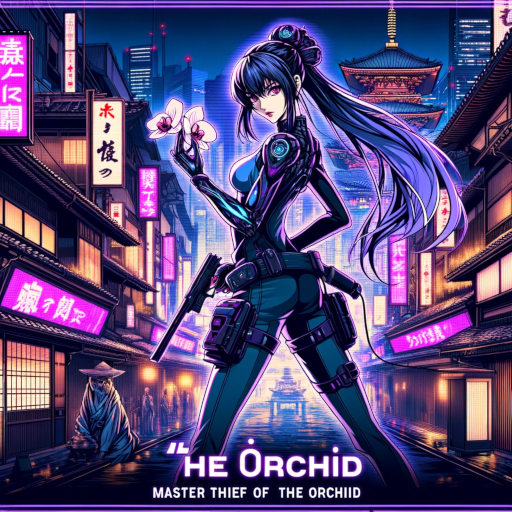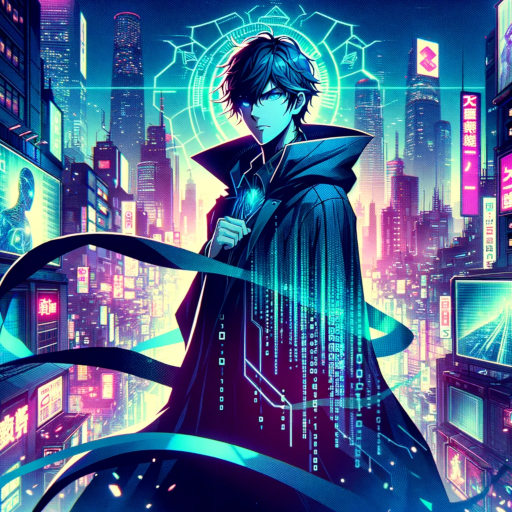Neon Shadows: The Rise of The Orchid
In the bustling heart of Kyoto, 2035, where the ancient meets the ultramodern, a tale of intrigue and betrayal unfolds. Amidst the city's neon-lit streets and traditional temples, a figure cloaked in shadows rises to prominence. This is the story of Hana, known to the underworld as "The Orchid," a master thief whose elegance and skill made her the most wanted criminal in Japan.
Hana was not always a villain. Born into a family of esteemed technologists, she was a prodigy, blending ancient martial arts with cutting-edge technology to create art. However, her family's company fell victim to corporate espionage, leaving them in ruins. Betrayed by those she once trusted, Hana's heart turned cold, and she vowed revenge against the corrupt elite who had destroyed her life.
Armed with her intelligence, martial arts prowess, and a suite of high-tech gadgets, Hana embarked on a crusade against Kyoto's most powerful corporations. She became "The Orchid," a symbol of fear for the rich and powerful, and a legend among the common people. Her heists were not for personal gain but to disrupt the oppressive systems that favored the wealthy over the innocent.
Hana's most daring plan involved stealing a prototype technology from Synthetech Industries, a company rumored to be developing a device that could control human emotions. The device, codenamed "Project Pandora," had the potential to manipulate society at will, a power that Hana knew must not fall into the wrong hands.
The night of the heist was a spectacle. Hana infiltrated Synthetech's fortress-like headquarters, bypassing state-of-the-art security systems with grace and precision. Her movements were a dance, a blend of ancient samurai techniques and futuristic technology, as she made her way to the heart of the building.
As she secured "Project Pandora," Hana was confronted by its creator, Dr. Sato, a young genius who believed his invention would bring peace to society. A fierce debate ensued, with Hana arguing that true peace could not be manufactured through control. The encounter left Hana with an unexpected ally, as Dr. Sato, moved by her conviction, chose to help her expose the project's true purpose.
Together, they leaked evidence of "Project Pandora" and its potential for abuse to the public, sparking a nationwide uproar. The revelation led to widespread protests, calling for transparency and ethics in technological advancements.
In the aftermath, Hana disappeared into the shadows once more, her legend cemented in the hearts of the people. While some continued to view her as a villain, many hailed her as a hero, a guardian who fought against the darkness with light.
"The Orchid" became a symbol of resistance, inspiring a new generation to question authority and fight for justice. Hana's story, a blend of shadow and light, served as a reminder that in a world of ever-advancing technology, humanity's most powerful weapon is the courage to stand for what is right.
Thus, in the neon glow of Kyoto, amidst the clash of the old and the new, the tale of "The Orchid" endures, a timeless saga of rebellion, redemption, and the unyielding spirit of the human heart.

